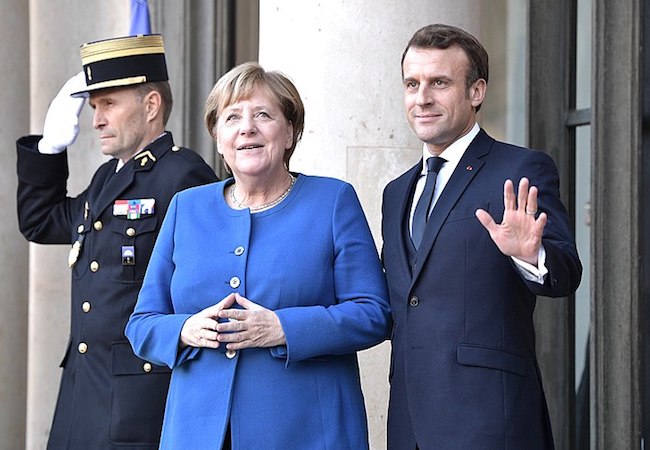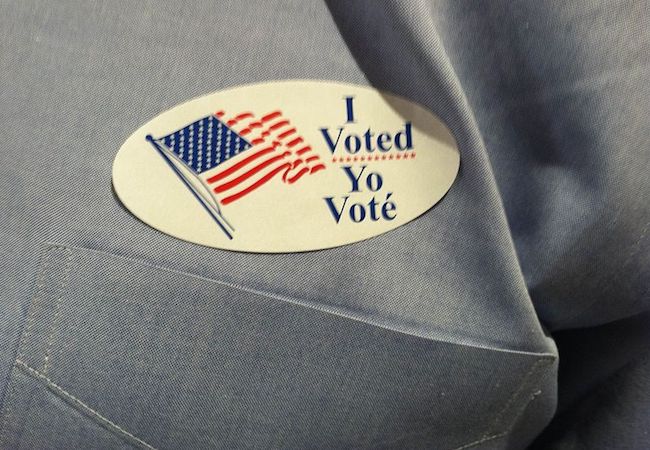
By Michael Trinkwalder
The 18th of May 2020 constituted nothing short of a revolution for the European Union (EU). On this day, French President Macron and German Chancellor Merkel first announced what would eventually become a €750 billion ($885 billion) COVID-19 Recovery Fund for the EU. Yet the fund constitutes an even bigger revolution for Germany than it does for the Union. During the Euro crisis, Merkel’s very name had become synonymous with austerity and financial orthodoxy, with the chancellor strictly ruling out any kind of EU debt pooling. Consequently, her decision to openly support the idea of common EU debts left even seasoned Germany observers stunned. More astonishingly still is the fact that a solid 2/3 majority of the supposedly parsimonious Germans back her on this action. Could this development now signal a departure away from Berlin’s “free-rider” foreign policy and finally see Germany take on international responsibility commensurate with its power?
Status-Quo Revolutionaries?
What previously stopped Berlin from taking on a greater leadership role internationally is that the overwhelming majority of Germans were quite happy with the status quo. Not only is Germany surrounded by friendly states, but it has also been the biggest beneficiary of the EU’s common market. German exports dominate intra-EU trade, and the country had an unemployment rate less than half that of its Eurozone peers at the beginning of 2020. From a German standpoint, the status quo was working well and did not require fixing, let alone any “radical solutions,” such as jointly issued European bonds, that were proposed in the aftermath of the Euro crisis.
As a result, Berlin has long favored an incremental and even dilatory approach in its European policy. Essentially, Germany does just enough to keep the EU running but makes no effort to resolve structural deficiencies such as the lack of a substantial common fiscal capacity. Nobody has embodied this kind of “status-quo conservatism” more than Chancellor Angela Merkel. Acting almost as more of a manager than a leader, Merkel’s standard modus operandi has been to wait out big or controversial decisions and instead follow a policy of small steps that offend no one. This approach effectively administers Germany’s current prosperity, but does little to prepare the country for the future.
Is it the Economy, Stupid?
In light of the country’s export-driven economic model, there has long been a tendency for Germany to prioritize stability above all else in its external relations. Merkel in particular still acts as if economic engagement with Russia and China will eventually turn these actors into “responsible stakeholders.” This is why her government has continued to defend the controversial Russian Nord Stream 2 gas pipeline, and why she has intervened personally to prevent Huawei from getting banned from building Germany’s 5G network infrastructure. It should be noted that this is not just the result of self-serving cynicism, but also reflects a worldview in which a policy of engagement is not just a means to an end, but an end in itself. This is why Berlin often appears to be so strangely blind to the geopolitical dimension of “business projects” like Nord Stream 2. Nevertheless, in the face of increasing aggression abroad from both Russia and China, Germany’s “change through trade” approach is woefully out of date.
And Yet It Moves?
Fortunately, there is some cause for optimism. When it comes to allowing Huawei into Germany’s 5G infrastructure, Merkel has faced strong pushback from a broad coalition within the German parliament that includes not only her coalition partner, the Social Democrats, but also significant portions of her own party, the Christian Democratic Union (CDU). As a result, the German parliament is now set to pass a law that would largely exclude Huawei from Germany’s 5G roll-out. Additionally, due to the poisoning of Russian opposition politician Alexei Navalny, resistance against completing Nord Stream 2 is also increasing. Moreover, elections are coming up next year and currently it appears almost certain that the next government coalition will include the Green party. This is significant because the Greens have traditionally placed a strong emphasis on a human rights-centric foreign policy, and they have recently taken a hawkish position on China. Lastly, recent surveys suggest that the old consensus in favor of external restraint is gradually eroding, and support for a more proactive foreign policy is particularly strong among young people.
Furthermore, the ongoing COVID-19 pandemic has also worked to shock Germany out of its collective complacency. The sheer magnitude of the interconnected economic, health and social crisis in Europe made it obvious that just holding the course could very well tear the EU apart. Additionally, nobody could argue that COVID-19 was somehow a self-inflicted problem affecting only a few countries — a crucial difference to the earlier Euro crisis. However, since the recovery fund was explicitly sold as a one-off measure, it remains to be seen if the fund truly signifies a shift in Germany’s status-quo mindset. Considering the worsening geopolitical aftershocks of the pandemic, Germany’s foreign policy would clearly benefit from a change of mindset.
A Vacuum Waiting to be Filled
Despite some encouraging signs, the fact remains that for most Germans, foreign policy issues remain a low priority. In this sense, it is understandable that foreign policy has played barely any role in the race for Merkel’s successor. While this stands in sharp contrast to the rapid changes in the global strategic environment, this kind of political vacuum also presents an opportunity for the next chancellor to put his or her personal mark on Berlin’s foreign policy for years to come. Accordingly, next year’s federal election will be crucial in determining the future course of Germany, and by extension also that of the EU. Only through the EU can Germany exert maximum influence on global affairs, and only through German backing can the EU become a credible global actor. After all, if Germany does not relearn the “language of power,” it seems unlikely that Europe ever will. If Germany really is “waking up”, however, then Europe might yet play an even more important role in global affairs.
Michael Trinkwalder is the 2020 Young Professionals in Foreign Policy Europe Fellow; he is a Research Assistant at the NATO Parliamentary Assembly, where he focuses on EU-NATO cooperation, defense innovation and the implications of the rise of China. Previously, he has worked at the Center for Public Affairs of the German Armed Forces, AICGS at the Johns Hopkins University as well as the Aspen Institute Germany. He holds an M.A. in International Relations from the KU Eichstätt-Ingolstadt and a B.A. in International Business Studies from the FAU Erlangen-Nürnberg.
Disclaimer: The views expressed in the article above are those of the author alone and do not necessarily reflect the official position of the NATO PA.




